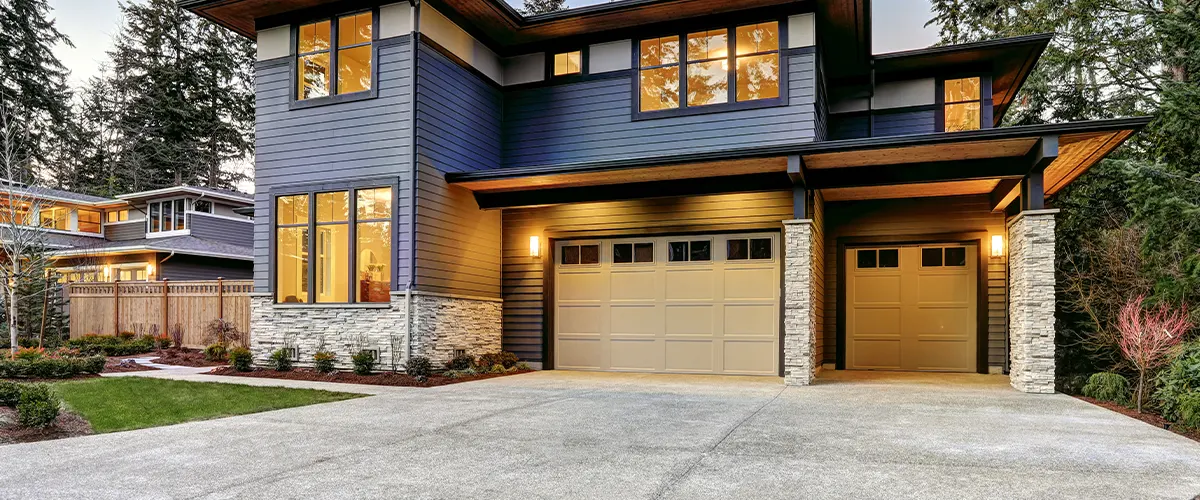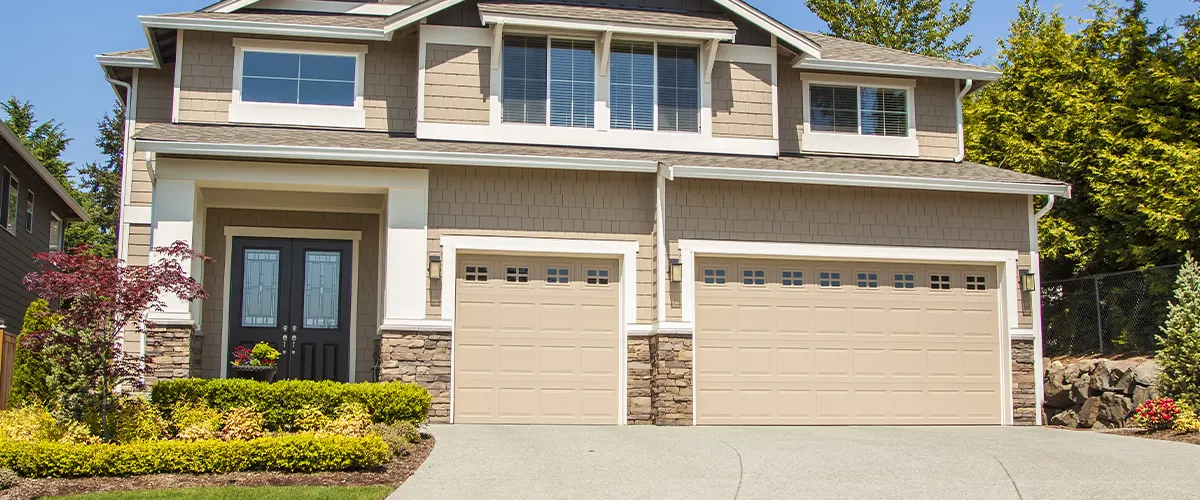There are many factors to consider when choosing the best material for your driveway. Not only do you need to think about what will look best with your home, but you also need to take into account the climate and weather conditions in your area. In this blog post, we will discuss five different types of driveways and their benefits. We will also help you decide which is the best material for driveways so you can make the right choice for your home!

The Benefits Of Having A Quality Driveway
When it comes to driveways, there are a few key benefits to consider:
Increased home value – A well-maintained driveway can add value to your home. If you are thinking of selling in the future, a new driveway may be just what potential buyers are looking for.
Increased curb appeal – A well-designed driveway can enhance your home’s curb appeal and make it stand out from the rest.
Reduced maintenance – A good driveway material will last for many years with minimal upkeep. This means less time spent on maintenance and more time enjoying your home!
Versatility – There are many different types of driveways to choose from, so you can find one that best suits your needs and lifestyle.
Safety – A good driveway will provide traction and stability in all weather conditions, making it safe for you and your family.
The Best Materials For Driveways
Asphalt Driveways
According to NAPA, asphalt is a popular choice for driveways, thanks to its affordability and easy installation. It’s also a durable material that can withstand heavy traffic and extreme weather conditions. However, asphalt does have some downsides. For one, it’s not as visually appealing as other materials like concrete or stone.
Additionally, it’s more susceptible to damage from heat and sunlight, so it’s not the best choice for homes in warmer climates. Asphalt driveways also require frequent sealing to prevent cracking and deterioration. All things considered, asphalt is a good option for homeowners who are looking for an affordable and durable solution for their driveway. Just be sure to take care of it with regular sealing.

Concrete Driveways
You pull up to your home after a long day of work, and the last thing you want is for your driveway to be a hassle. Fortunately, with a concrete driveway, you won’t have to give it much thought. Concrete is one of the most popular driveway materials for good reason—it’s durable and low-maintenance.
You can expect it to last for decades with minimal care, and it won’t require sealing or resurfacing like other materials. In addition, concrete is an affordable option that strikes a balance between budget-friendly and high-end materials. It may not earn as many compliments as more expensive alternatives, but it’s a dependably solid choice. So when you’re looking for a new driveway, don’t count out concrete—it may be just what you’re looking for.

Gravel Driveways
When it comes to choosing a driveway, there are a few options to consider. One popular choice is gravel. Gravel driveways are relatively quick and easy to install, so if you’re looking for a faster option, this could be the way to go. And although they may not be as flashy as natural stone driveways, they’re quite durable and can last for decades with the right maintenance. This involves regularly applying top-up layers (every two to three years) and filling in any holes that may appear on the driveway surface. With a little bit of care, a gravel driveway can be a great choice for your home if you want to skip paving stones or deal with other expensive options.

Brick Driveways
When it comes to driveways, brick is often seen as the Cadillac of materials. Its luxurious, classic look adds curb appeal and value to any home. But beyond its good looks, brick is also incredibly durable, able to withstand heavy traffic and weather extremes. In fact, a properly installed and maintained brick driveway can last for generations.
Of course, all that quality comes at a price. Brick driveways are typically more expensive than concrete or asphalt, both in terms of materials and installation. But for many homeowners, the beauty and durability of brick outweigh the upfront cost. With minimal maintenance, a brick driveway can provide years of trouble-free use. And when it eventually does need to be replaced, the bricks can often be reused, further extending their lifespan. For a driveway that will stand the test of time, brick is hard to beat.

Paver Driveways
Pavers are a popular choice for driveways, sidewalks, and patios because of their durability and aesthetic appeal. Although pavers require more upfront work than other materials, such as concrete or asphalt, they have a longer lifespan and can provide a high-end look. There are a variety of paver materials to choose from, including brick, stone pavers, concrete pavers, and a wide range of installation patterns.
With so many options available, it is easy to find a paver driveway that looks like a true extension of the home. In addition, pavers are easy to repair if they become damaged, making them a low-maintenance option in the long run. For these reasons, pavers are an excellent choice for those looking to create a stylish and long-lasting outdoor space without investing in regular maintenance.

Turf Driveways
A turf driveway is a type of driveway that combines grass with permeable pavers or concrete blocks. The resulting driveway is usually more aesthetically pleasing than a traditional concrete or asphalt driveway, and it can offer some environmental benefits as well. However, turf driveways are not suitable for all regions and climates.
In regions that regularly receive snowfall, the grass will quickly become packed down and icy, making it dangerous to drive on. Likewise, in regions that experience prolonged periods of drought, the grass will quickly turn brown and die, leaving an unsightly and potentially hazardous driveway. For these reasons, it is important to consider the climate of your region before selecting a turf driveway.

Conclusion
So, what’s the best driveway material for your home? It depends on a few factors, including climate and budget. If you’re not sure which type of driveway is right for you, our team can help. We have years of experience installing all types of driveways, so we know how to make the process go smoothly – from start to finish. Contact us today for a consultation!
